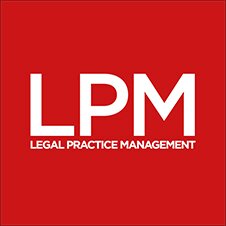Lawyers versus tech? by Nigel Kidwell, Paragon Law Select
This blog post was also featured as a column in the July 2016 issue of Legal Practice Management magazine. To read the issue in full, download LPM magazine.
The ‘hire’ of Ross, the world’s first artificially intelligent lawyer, has recently been making the headlines.
But delegation by human lawyers to software is by no means new. Many of the largest law firms since the turn of the millennium have invested in the development of data banks, usually orchestrated into Q&A form, interrogable by their valued clients for answers to queries that most frequently arise. On a broader level, firms that don’t adopt swathes of current law for redistribution under their own banner for marketing purposes are now the exception rather than the rule.
Retention of human input against service commodification has ebbed and flowed, seemingly in peaceful coexistence – not without revolutions, but quiet ones. The processing of volumes of road trafc accident claims, for example, bears little relation to the approach of 20 years ago, and it’s centred upon far fewer players. But the make-up of the underlying legal industry hasn’t fundamentally changed.
Grounds now exist to anticipate that tensions between the lawyer and computer science will increase. Wherever services are easily replicable, while a lawyer may see tedium, a business investor sees reliable income and profit margins. The scope aforded by ABSs for external involvement in legal services provision must shift the focus of attention to an extent.
Pressures aren’t restricted to the private sector. Ongoing Jackson reform committees are reported to have heavy input from the IT and even the AI sectors, with significant potential implications for much of the routine work of both solicitors’ and barristers’ professions. Non-contentious lawyers aren’t immune from change either. The inexorable progress of electronically available precedents, from few sources of supply, means that most lawyers up and down the country operate from the same sets of basic draft documents. They also operate from the same sets of updates, and rely, in whole or in part, upon the legal commentary supplied in respect of those precedents. They’ve no doubt made their own contribution over time to the quality of those documents, but provenance would make little diference to an ambitious innovator, backed by the safety net of a bespoke insurance policy where necessary.
The legal profession has assisted in arriving at a set of circumstances where some service areas upon which it has traditionally relied for income will be provided in a very diferent way in the near future. There is, though, scope for lawyers who wish to remain lawyers to do so. Ultimately law is manmade, founded upon, and adapted through the ages by a concatenation of the widest range of human thought – ethics, economics, theology, politics – an endless list. The rules change because outlooks change – sometimes rapidly and unpredictably (the EU referendum serving as a demonstration). Collective appetite to hand over to the inanimate that which defines our species is surely limited. Practitioners seeking longevity may find it useful and comforting to identify those parts of their service provision which are not easily replicated, by man or machine – empathetic interaction with clients, efective negotiation with opponents, issues of judgement based on painstakingly built experience and skill.
Processing lawyers may have cause to feel threatened, but thoughtful and decisive ones should not.



